“What is Farming?”
Farming refers to the practice of cultivating plants and raising animals for the purpose of producing food, fiber, and other resources. It involves various activities such as plowing, planting, watering, managing livestock, harvesting crops, and more. Farming can take place on small family-owned plots of land or large commercial operations. The primary goal of farming is to ensure a sustainable and reliable food supply for human consumption.
“Understanding the Definition of Farming”
Farming refers to the practice of cultivating and producing crops or raising animals for food, fiber, or other agricultural products. It is a vital aspect of the agricultural industry and plays a crucial role in providing food to sustain human populations.
Farming involves various activities such as preparing the land, planting seeds, irrigation, fertilizing, maintaining crops, and harvesting. These activities can be done on small-scale family farms or large-scale commercial farms.
Crop farming involves the cultivation of plants such as grains (wheat, corn, rice), vegetables, fruits, and herbs. Farmers need to understand the soil composition, climate, and proper planting techniques to optimize crop growth and yield.
Livestock farming involves raising animals for meat, milk, eggs, or other by-products. This includes cattle, pigs, poultry, sheep, and fish. Livestock farmers take care of the animals’ feeding, breeding, and overall health to ensure their well-being and productivity.
Farming practices can vary depending on the region, climate conditions, and farming methods employed. Traditional farming methods often involve manual labor and simple tools, while modern farming techniques use advanced machinery and technology to improve efficiency and productivity.
Sustainable farming practices aim to minimize the negative environmental impacts of agriculture by promoting soil conservation, water management, and the use of organic fertilizers, as well as adopting natural pest control methods.
Farming plays a critical role in ensuring food security, providing employment opportunities, and contributing to the economy. It requires knowledge, skills, and dedication from farmers to successfully manage their farms and meet the ever-increasing demand for agricultural products.
“Exploring the Concept of Farming”
Farming is a fundamental concept that has played a significant role in human civilization for thousands of years. It is the practice of cultivating crops and rearing animals for food, fiber, medicinal plants, and other products essential for human needs.
The concept of farming emerged when humans transitioned from a nomadic hunter-gatherer lifestyle to settled agriculture around 10,000 years ago. This shift marked a major turning point in human history, leading to the development of permanent settlements and the birth of civilizations.
Farming involves several essential activities, including land preparation, seeding or planting, irrigation, pest control, and harvesting. The choice of crops and livestock engaged in farming depends on various factors such as climate, soil type, and available resources. Different farming methods have evolved over time, including traditional, organic, and modern industrial farming.
Traditional farming methods involve simple tools and techniques passed down through generations. These methods are often labor-intensive and rely on natural fertilizers like manure. Traditional farmers typically grow a variety of crops and practice mixed farming, where multiple types of crops or livestock are grown together.
Organic farming is a sustainable approach that emphasizes the use of natural fertilizers and pest control methods while minimizing the use of synthetic chemicals. This method promotes soil and ecosystem health, biodiversity, and animal welfare. Organic farms aim to produce high-quality, environmentally-friendly products.
Industrialized or modern farming, on the other hand, utilizes advanced technologies, machinery, and large-scale commercial production methods. This form of farming often focuses on specialized crop or livestock production, aiming for high yields and efficiency. Modern techniques include the use of genetically modified organisms (GMOs), chemical fertilizers, pesticides, and mechanization.
Farming is not only a means of food production but also influences social, economic, and environmental aspects. It provides employment opportunities, supports local economies, and ensures food security. However, farming also poses challenges such as environmental degradation, loss of biodiversity, and pollution due to the excessive use of chemicals.
Exploring the concept of farming also involves understanding sustainable practices that aim to minimize the negative impacts on the environment while maintaining productive and profitable agricultural systems. This includes techniques like crop rotation, integrated pest management, conservation tillage, and agroforestry. Such practices aim to maintain soil fertility, conserve water, reduce greenhouse gas emissions, and preserve biodiversity.
In recent years, there has been a growing interest in alternative farming methods such as vertical farming, hydroponics, and aquaponics. These innovative techniques allow for year-round cultivation in controlled environments, maximizing productivity while using fewer resources like space, water, and energy.
Overall, farming is a multi-dimensional concept that encompasses various techniques, approaches, and considerations. It is a dynamic field that continues to evolve as we explore new methods and strive for sustainable and efficient agricultural practices to meet the demands of a growing global population.

+ There are no comments
Add yours